 | TODAY IN SCIENCE HISTORY NEWSLETTER - 29 MAY |
| Feature for Today |
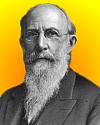 On 29 May 1826, Ebenezer Butterick was born, the American manufacturer who is regarded as the inventor of graded paper patterns for clothing (1859). On 29 May 1826, Ebenezer Butterick was born, the American manufacturer who is regarded as the inventor of graded paper patterns for clothing (1859).This link to a Biography of Ebenezer Butterick (published in 1907) describes how Butterick patterns became iconic in the era when mothers made clothing for their family. |
| Book of the Day | |
| |
| Quotations for Today | |
 | "There is only one thing worse than coming home from the lab to a sink full of dirty dishes, and that is not going to the lab at all!" |
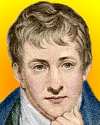 | "Every discovery opens a new field for investigation of facts, shows us the imperfection of our theories. It has justly been said, that the greater the circle of light, the greater the boundary of darkness by which it is surrounded." |
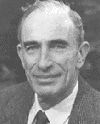 | "Overdrafts on aquifers are one reason some of our geologist colleagues are convinced that water shortages will bring the human population explosion to a halt. There are substitutes for oil; there is no substitute for fresh water." |
| QUIZ | |
| Before you look at today's web page, see if you can answer some of these questions about the events that happened on this day. Some of the names are very familiar. Others will likely stump you. Tickle your curiosity with these questions, then check your answers on today's web page. | |
| Births | |
 |  A Chinese-born American physicist was born on 29 May 1912. She provided the first experimental proof that parity is not conserved in weak subatomic interactions of nuclear beta decay. In 1956, two physicists, Tsung Dao Lee, and Chen Ning Yang proposed that parity was not conserved for weak interactions. Dr. Wu tested the proposal by observing the beta particles given of by cobalt-60. She observed that there is a preferred direction of emmission, and that therefore, parity was not conserved for this weak interaction. In other words, she was able to prove that identical nuclear particles do not always act alike, and, thereby, disprove, what was then, a widely accepted "law" of nature! A Chinese-born American physicist was born on 29 May 1912. She provided the first experimental proof that parity is not conserved in weak subatomic interactions of nuclear beta decay. In 1956, two physicists, Tsung Dao Lee, and Chen Ning Yang proposed that parity was not conserved for weak interactions. Dr. Wu tested the proposal by observing the beta particles given of by cobalt-60. She observed that there is a preferred direction of emmission, and that therefore, parity was not conserved for this weak interaction. In other words, she was able to prove that identical nuclear particles do not always act alike, and, thereby, disprove, what was then, a widely accepted "law" of nature! Can you name this physicist? Can you name this physicist? |
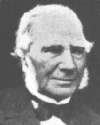 |  Antoine A. B. Bussy (born 29 May 1794) was a French chemist who first prepared a certain element in coherent form. He described a method to isolate this element in 1831. He heated the chloride of this element with potassium in a glass tube. When he washed out the potassium chloride, small, shining globules of the element remained. The element was discovered by Sir Humphry Davy (1808) but prepared in a very small amount. It is a ductile silver white alkaline earth metal and the eighth most abundant element in the Earth's crust. Antoine A. B. Bussy (born 29 May 1794) was a French chemist who first prepared a certain element in coherent form. He described a method to isolate this element in 1831. He heated the chloride of this element with potassium in a glass tube. When he washed out the potassium chloride, small, shining globules of the element remained. The element was discovered by Sir Humphry Davy (1808) but prepared in a very small amount. It is a ductile silver white alkaline earth metal and the eighth most abundant element in the Earth's crust. What was this element? What was this element? |
| Deaths | |
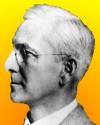 |  Arnold Gesell (1880-1961) was a U.S. psychologist and pediatrician who studied the physical and mental development of normal infants and children. His books gave norms for behavior at successive stages of development and were widely read by parents. Gesell was one of the first to attempt a quantitative study of child development, developing his own methods of observation and measurement. Gesell's initial work focused on developmentally disabled children, but he believed that it was necessary to understand normal infant and child development in order to understand nonnormality. He also studied Down's syndrome, cretinism, and cerebral palsy. From 1926, he pioneered a new method to make a record of the studies he made. Arnold Gesell (1880-1961) was a U.S. psychologist and pediatrician who studied the physical and mental development of normal infants and children. His books gave norms for behavior at successive stages of development and were widely read by parents. Gesell was one of the first to attempt a quantitative study of child development, developing his own methods of observation and measurement. Gesell's initial work focused on developmentally disabled children, but he believed that it was necessary to understand normal infant and child development in order to understand nonnormality. He also studied Down's syndrome, cretinism, and cerebral palsy. From 1926, he pioneered a new method to make a record of the studies he made.  What method did he pioneer? What method did he pioneer? |
 |  A certain English chemist (1778-1829) discovered several chemical elements and compounds, invented the miner's safety lamp, and epitomized the scientific method. With appointment to the Pneumatic Institution to study the physiological effects of new gases, he inhaled gases (1800), such as nitrous oxide (laughing gas) and a nearly fatal inhalation of water gas, (a mixture of hydrogen and carbon monoxide). He discovered alkali metals, potassium and sodium, an isolation made with electric current for the first time (1807); as well as several. He discovered boron at the same time as Gay-Lussac. He recognized chlorine as an element, which prior workers confused as a compound. A certain English chemist (1778-1829) discovered several chemical elements and compounds, invented the miner's safety lamp, and epitomized the scientific method. With appointment to the Pneumatic Institution to study the physiological effects of new gases, he inhaled gases (1800), such as nitrous oxide (laughing gas) and a nearly fatal inhalation of water gas, (a mixture of hydrogen and carbon monoxide). He discovered alkali metals, potassium and sodium, an isolation made with electric current for the first time (1807); as well as several. He discovered boron at the same time as Gay-Lussac. He recognized chlorine as an element, which prior workers confused as a compound. Can you name this man? Can you name this man? |
| Events | |
 |  In 1919, a solar eclipse permitted observation of the bending of starlight passing through the sun's gravitational field, as previously predicted by theory. Separate expeditions of the Royal Astronomical Society travelled to both Brazil and Africa. The verification of predictions of the theory, proved during the solar eclipse was a dramatic landmark scientific event. In 1919, a solar eclipse permitted observation of the bending of starlight passing through the sun's gravitational field, as previously predicted by theory. Separate expeditions of the Royal Astronomical Society travelled to both Brazil and Africa. The verification of predictions of the theory, proved during the solar eclipse was a dramatic landmark scientific event. What the theory, and who proposed it? What the theory, and who proposed it? |
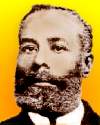 |  In 1888, another of his numerous lubricating devices was patented by black American inventor, E.J. McCoy (U.S. No. 383,746). His lubricators were so effective and reliable that customers looked for his name on them, which it is said gave rise to a new expression. In 1888, another of his numerous lubricating devices was patented by black American inventor, E.J. McCoy (U.S. No. 383,746). His lubricators were so effective and reliable that customers looked for his name on them, which it is said gave rise to a new expression. What is this expression? What is this expression? |
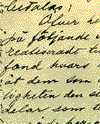 |  In 1898, the heirs of a European industrialist signed a "reconciliation agreement" so that lawyers and accountants can execute his will. The will's major bequest was to create the scientific awards, but first, there were disputes to be settled. In 1898, the heirs of a European industrialist signed a "reconciliation agreement" so that lawyers and accountants can execute his will. The will's major bequest was to create the scientific awards, but first, there were disputes to be settled. Can you name the man who left this will? Can you name the man who left this will? |
| Answers |
When you have your answers ready to all the questions above, you'll find all the information to check them, and more, on the May 29 web page of Today in Science History. Or, try this link first for just the brief answers. Fast answers for the previous newsletter for May 28: Prions are simple proteins, much smaller than viruses, and are unique since they lack a genome, whereas all other known infectious agents contain genetic material; Joseph Ignace Guillotin; cancer treatment; the decade including the year 1928; the decade including the year 1897. |
| Feedback |
 If you enjoy this newsletter, the website, or wish to offer encouragement or ideas, please send feedback by using your mail reader Reply button. If you enjoy this newsletter, the website, or wish to offer encouragement or ideas, please send feedback by using your mail reader Reply button. |
--
If you do not want to receive any more newsletters, this link
To update your preferences and to unsubscribe visit this link
If you do not want to receive any more newsletters, this link
To update your preferences and to unsubscribe visit this link
! !



Δεν υπάρχουν σχόλια:
Δημοσίευση σχολίου